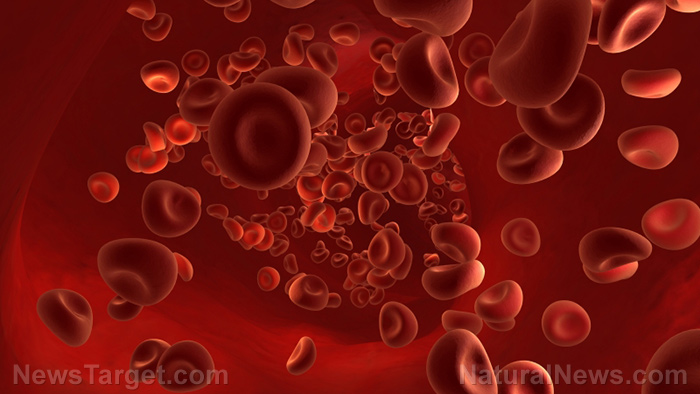
Advertisement
Just like the ebb and flow and rhythm found in nature, the body follows an internal clock to maintain proper balance, good mental clarity and overall good health. This clock is called the circadian rhythm – the biological mechanism that controls your sleep-wake cycle. These vital processes are largely tied to the Earth’s day-night cycle, to the point where even the red blood cells abide by the circadian rhythm. And just like a regular clock, your body’s biological clock can be disrupted by a variety of factors. When that happens, how can you bring back its proper function?
According to a study in Nature Communications, potassium is key to regulating the circadian rhythms in human red blood cells. The researchers observed that red blood cells, like other cells in the body, have 24-hour biological clocks that affect their activity throughout the day. Until this study, it has been unknown how these cell clocks were regulated.
Cells’ circadian rhythm
Potassium is one of the seven essential macronutrients that are vital for overall health. It’s also considered an electrolyte, which conducts electrical impulses throughout the body. Potassium is involved in various essential bodily functions, including blood pressure, digestion, heart rhythms, body pH balance and nerve impulses.
For this study, the researchers from the University of Surrey and Cambridge’s MRC Laboratory of Molecular Biology used a novel technique called dielectrophoresis, alongside newly developed technology, to study the properties of human red blood cells and gave an in-depth analysis on how they work. They observed that potassium levels in these cells differed depending on the time of day – increased levels during the day and decreased levels during the night.
By altering the levels of potassium in the cells, the researchers saw that high levels of the macronutrient negatively affected the circadian rhythm of the cells, whereas lower levels extended the cell’s perceived “day” period by several hours.
“This exciting discovery gives us a unique insight into the workings of red blood cell membrane physiology and its clock mechanism — where ion transport seems to be of particular importance,” said lead investigator Fatima Labeed.
“The study of circadian rhythms in red blood cells can potentially help us understand when and why heart attacks mostly occur during the morning. We will be looking into this further in our forthcoming studies.”
Striking a balance with potassium levels
The takeaway from this study is that you must strike a balance in the potassium level in your body to maintain a healthy circadian rhythm. Experts claim that the adequate intake for potassium is around 4,700 mg in healthy individuals.
People often turn to bananas to get their daily dose of potassium, and while they are indeed a good source of this macronutrient, they certainly aren’t the only one. Here are other foods you can add to your diet to get the recommended potassium intake each day.
- Avocados. These green healthy fruits are chock-full of healthy fats and are a great source of vitamin K and folate. Half an avocado contains about 487 mg of potassium, equivalent to 10% of the average intake. So, eating a whole avocado can already fulfill 20% of your daily potassium needs.
- Coconut water. Hydrating yourself with a refreshing glass of coconut water can give you 600 mg of potassium or 13% of the adequate intake. In addition, this healthy drink is a fantastic source of magnesium, manganese and calcium.
- Spinach. As one of the most nutrient-dense vegetables around, one cup of frozen spinach provides 540 mg of potassium, fulfilling roughly 12% of your daily potassium needs. This same serving size also contains 366% of your recommended dietary intake for vitamin A, 725% of vitamin K and 29% for magnesium.
Keep your potassium levels in check to see improvements in your circadian rhythms.
Sources:
Advertisements







